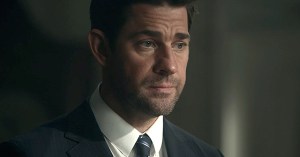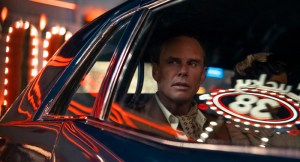35 Years Later, This Is Spinal Tap Still Rocks Harder Than Ever
Five reasons why Rob Reiner's directorial debut became such a cultural touchstone and still endures today.

On March 2, 1984, the world was blessed by the hilarious mocku-rockumentary This Is Spinal Tap (Certified Fresh at 95%). Utilizing largely improvisational dialogue, director Rob Reiner and writers and cast members Christopher Guest, Harry Shearer, and Michael McKean created a brilliant documentary about one of the world’s worst fake rock bands.
While underappreciated at first (many early viewers thought the documentary was real and complained that it “wasn’t about a popular band like Led Zeppelin”), the film has gone on to become a comedy cult classic. Now, on its 35th anniversary, we look back on what makes This Is Spinal Tap one of the greatest and most influential music films, comedies, and mockumentaries of all time.
It Was Groundbreaking

Mockumentaries have existed in some form before This Is Spinal Tap; The Beatles’ 1964 classic A Hard Day’s Night (98%) was filmed in a mockumentary style, and Woody Allen’s Zelig (100%) marked a significant step forward towards realism in the genre. But, it wasn’t until This Is Spinal Tap in 1984 that the genre was perfected.
While not a huge box office hit, This Is Spinal Tap was critically acclaimed, landing on multiple “Best of 1984” lists, and it boasts a Certified Fresh 96% on Rotten Tomatoes. Its status as a genre-defining piece of art has only solidified all the more in the decades since its release.
The success of This Is Spinal Tap led to the celebrated filmmaking career of writer, director, and Spinal Tap lead guitarist Christopher Guest. With the same improvisational style and much of the same cast, Guest has since written and directed Certified Fresh mockumentaries like Waiting For Guffman, Best In Show, and A Mighty Wind.
But the influence and acclaim extends far beyond the members of the band.

(Photo by Universal Pictures)
In recent years, we have seen an uptick in both the quality and the prevalence of mockumentary content. Sacha Baron Cohen‘s Borat was a cultural phenomenon that made nearly $300 million, scored a Certified Fresh 91% on the Tomatometer, and apparently will be quoted until the end of time; The Lonely Island’s Popstar: Never Stop Never Stopping took This Is Spinal Tap from ’80s rock into the Bieber-fied 21st century; and Taika Waititi‘s What We Do In The Shadows was a quirky Sundance hit that crossed over to the mainstream with critical acclaim and spawned a television spinoff, set to premiere later this month.
These three films and a number of popular current mockumentary TV programs like Documentary Now! (94%) and American Vandal (98%) all owe a debt to This Is Spinal Tap for its influence on comedy. Sitcoms like The Office or Parks & Recreation might never have been as successful without the groundwork laid by Spinal Tap. And if there were no Office or American Vandal, what would the millions of millennials mainline on Netflix before bed? Would they have no reason to subscribe? And if not, would Netflix streaming ever have taken off the way it did? And if there’s no streaming content, would we all still be getting our DVDs through the mail?
Now, we’re not saying that This Is Spinal Tap is the reason that Roma exists, but it’s definitely one of the reasons that Best In Show, Borat, and American Vandal all exist.
Real Rock Stars Understand It

(Photo by Sony Pictures Classics courtesy Everett Collection)
It might come as a surprise, but despite the less than stellar picture of rock-and-rollers that This Is Spinal Tap paints, many of the bands and musicians it lampoons have seen it and feel strongly about it.
Aerosmith guitarist Joe Perry said of the film, “When we watched Spinal Tap, my wife and I saw it, and we fell on the floor. It was great. Every bit is brilliant as it was supposed to be. So good.” On the other hand, frontman Steven Tyler didn’t find it so funny, saying, “That movie bummed me out, because I thought, ‘How dare they? That’s all real, and they’re mocking it.’”
In the documentary It Might Get Loud, U2 guitarist The Edge said, “It’s so hard to keep things fresh, and not to become a parody of yourself. And if you’ve ever seen that movie Spinal Tap, you will know how easy it is to parody what we all do. The first time I ever saw it, I didn’t laugh. I wept. I wept because I recognized so much and so many of those scenes.”
The phrase “Spinal Tap Moment” has even entered the rock lexicon.
It Made Rob Reiner into a Director

(Photo by Columbia Pictures courtesy Everett Collection)
Prior to directing This Is Spinal Tap, Rob Reiner was best known as Michael Stivic, the meathead son-in-law of Archie Bunker in the hit sitcom All In The Family. While he played this role to great success (which included five Golden Globe and Emmy nominations and two Globe wins), he would soon find greater success as a director. After bursting onto the directing scene with This Is Spinal Tap, Reiner would follow it with The Sure Thing, Stand By Me, The Princess Bride, When Harry Met Sally…, Misery, and A Few Good Men.
You read that list correctly: Rob Reiner’s first seven films as a director were, in order, a hilarious, genre-defining mockumentary; an ’80s teen romp; a classic coming-of-age film; a beloved fantasy adventure; one of the greatest rom-coms of all time; a terrifying thriller; and an oft-quoted military courtroom drama. Yes, the guy who directed This Is Spinal Tap also directed this, this, and this.
The crazy part is that all of these were critical and commercial successes. These seven movies average 90% on the Tomatometer, and This Is Spinal Tap kicked the whole thing off.
Spinal Tap Is Now a Real (and Successful) Band

(Photo by NBC/Getty Images)
Unlike every other popular music group that received the rockumentary treatment, Spinal Tap was a fake band that became a real rock group.
In the film, Spinal Tap was a washed-up group of has-beens that was “treading water in a sea of retarded sexuality and bad poetry,” but as a real-life band, their three albums have all charted in the Top 200 (with the latter two of the three making it into the Top 100), and they’ve been called “top-notch… and striking the right balance between parody and real rock & roll.”
And while, in the mockumentary, Tap played second fiddle to a puppet show, the band has since performed in front of a sellout crowd at Wembley Stadium, played Glastonbury Fest, and headlined a full U.S. tour.
In fact, on their second real-life album, Break Like The Wind, Tap played alongside rock geniuses like Jeff Beck, Joe Satriani, Slash, and Waddy Wachtel, as well as Cher. Because who wouldn’t want to play with Cher?
And the reason why they’ve had such acclaim and success as a real band? Well…
Their Songs Are Excellent

While all the jokes and improvisational shenanigans in the film are inspired, perhaps the most impressive thing about it is the music itself.
In fact, the music might be the one thing that doesn’t quite fit the narrative of the movie; Spinal Tap’s songs are simply too good to believe they’re washed up. They span several decades and cover multiple genres, styles, and sensibilities, and they work both as a parody of and celebration of popular music, as well as a complex, well-written, fully functional rock compilation, regardless of the humor.
“Gimme Some Money” perfectly mimics early Beatles songs like “Money (That’s What I Want)” and “Do You Want to Know A Secret,” but its skiffle-inspired sound, catchy lyrics, and a great Nigel Tufnel solo make it a tight nod to ’60s rock and roll and a great marker to show when the Tap got their start. They even went psychedelic on the late-’60s parody song “(Listen to the) Flower People” and the prog rock song “Stonehenge.” And while the inappropriate sex joke that forms the basis of “Tonight I’m Going to Rock You Tonight” admittedly hasn’t aged very well, it still boasts a rocking guitar solo, a killer hook, and powerful drums.
In fact, the whole Spinal Tap discography is full of incredible songs that perfectly straddle that line between parody and real, excellent rock music. It’s difficult to make a lasting music parody, but it’s even more difficult to make music that stands on its own. It’s also difficult to make a comedy film, but it’s even more difficult to make one that has been beloved and celebrated for 35 years.
This Is Spinal Tap opened on March 2, 1984.






